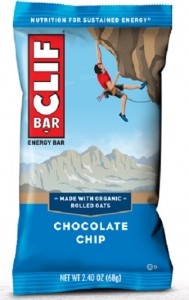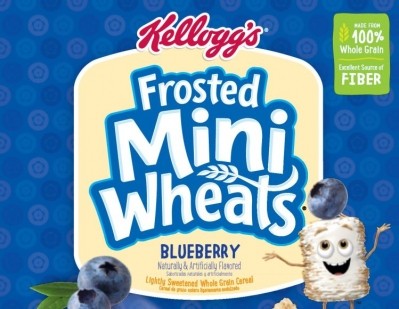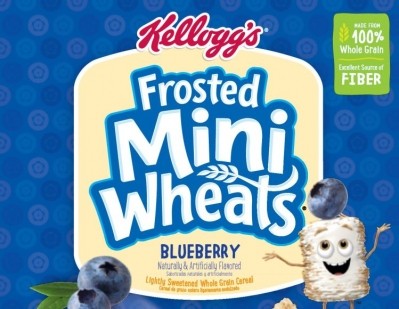Clif Bars are ‘loaded with added sugar,’ claims lawsuit

In a lawsuit* - filed in the southern district of California by the same team of attorneys that has sued Mondelez, Kellogg, Post, and General Mills over sugar levels in breakfast biscuits and cereals – the plaintiffs argue that Clif Bars are “loaded with added sugar,” adding:
“Despite the compelling evidence that sugar acts as a chronic liver toxin, detrimentally affecting health, and despite that as much as 37% of the calories in Clif’s Kid ZBars and classic Clif Bars come from added sugar, Clif markets these so-called ‘nutrition’ bars with labeling and packaging claims that convey a health and wellness message with the goal of increasing the price and sales of its high-sugar ‘nutrition’ bars.
“The claims, designed to appeal to health conscious consumers, however, are deceptive because they are incompatible with the dangers of the excessive sugar consumption to which the products contribute,” adds the complaint, which notes that The World Health Organization recommends that no more than 10% of an adult’s calories—and ideally less than 5%—should come from added sugar.
(The FDA recently set a daily reference value of 50g added sugar, or 10% of calories based on a 2,000-calorie diet to be included on the new-look Nutrition Facts panel.)
‘The primary ingredient in each Classic Clif Bar is brown rice syrup—an added sugar …’
There is no specific regulation that disqualifies firms from implying or stating a product that products are healthy or nutritious based on sugar content (conditions of use for the nutrient content claim ‘healthy’ focus on fat and sodium and don’t mention sugar, while 'nutritious' is not defined in law).
However, the plaintiffs argue that federal regulations enshrined in California state law require that labels are not false or misleading, and allege violations of California’s false advertising and unfair competition laws, and the Consumers Legal Remedies Act.
And while Clif Bar does not explicitly describe its bars as ‘healthy’ ‘low sugar’ or ‘good for you’ on the label, the products are designed to appeal to health-conscious consumers, says the complaint, which links "excessive" intakes of added sugar to everything from heart disease and type 2 diabetes, to cancers, cognitive decline and liver disease.
("Excessive" is defined as any amount above approximately 5% of daily caloric intake.)
“Despite that the primary ingredient in each Classic Bar is brown rice syrup—an added sugar—Clif uses additional front of the label statements to emphasize that the Classic Bars are made with other ingredients consumers associate with being healthy [eg. ‘Made with rolled oats’]…
“Despite that the Original ZBars are loaded with added sugar, Clif prominently labels the bars with the following claims suggesting they are healthy or conducive to good health and physical well-being:
a. “Nourishing Kids in Motion, b. No High-Fructose Corn Syrup, c. In raising our family, finding nutritious on-the-go snacks for our kids wasn’t easy. That’s why we created Clif Kid – wholesome, delicious snacks..."
How much added sugar is in Clif Bars?
So how much sugar is in Clif Bar’s products, and is it accurate to describe them – as the plaintiffs do – as ‘high-sugar’?
‘Classic’ Clif bars contain 17-22g of added sugar, with 25-34% of calories derived from added sugar (so one bar could account for up to 44% of the FDA’s new 50g daily value for adults or 88% of the WHO’s ‘ideal’ daily limit of 25g or 5% of energy).
Clif Kid Original Z bars contain 11-12g per serving, with 34-37% of calories from added sugar; Clif Kid ZBars Protein contain 8-9g added sugar (25-28% of calories); Clif Kid ZBars Fruit and Veggie contain 8g added sugar (25% of calories); and Clif Kid filled bars contain 6-7g added sugar (17-22% of calories).
To put this in perspective, yogurts, for example, typically contain 12-18g sugar per serving, while a small [8oz] glass of Tropicana Original 100% orange juice has 22g sugar.
In the cereal aisle, Raisin Bran Crunch contains 19g of sugar per 53g serving, and Honey Nut Cheerios - the best-selling cereal in the US - contain 9g of sugar per 28g serving.
The FDA, meanwhile, does not define ‘high’ or ‘low’ sugar, and only sets conditions of use for ‘reduced/less/lower sugar’ claims, which Clif Bar is not making.
Clif Bar: We’re making energy bars, so they contain carbs…
Keely Wachs, director, company affairs, at Clif Bar, said the company does not comment on pending litigation but added that its bars are “energy foods designed for active lifestyles, and include carbohydrates to provide the energy required to perform in these types of activities.”
He added: “Sugar is one of several carbohydrates that we include in our food because it provides immediate energy to the body to help activate moving muscles and the brain.
“In addition to CLIF Bar and Zbar, we provide a portfolio of nutritious bars for adults and kids with lower sugar for less active eating occasions.”
Attorney: 'We can expect to see more sugar-related cases'
So what do attorneys make of the recent wave of added sugar litigation?
Keri Borders, a partner at law firm Mayer Brown, told FoodNavigator-USA last year that sugar is a hot area for litigation, and while the defendants targeted don’t make specific health claims on pack, some use the word 'nutritious,' an ill-defined term that plaintiff's attorneys see as a code-word for healthy and fertile ground for false advertising lawsuits.
“The claims in the earlier complaints [against the cereal companies] were narrowed but they survived the motion to dismiss stage so it's not surprising that he [attorney Jack Fitzgerald, who is behind these suits] has taken this same theory and applied it to another type of product, and I expect he'll probably take it into other categories as well,” she told FoodNavigator-USA in relation to a similar suit vs Mondelez over belVita biscuits.
"It's hard to defend yourself when plaintiff's attorneys manipulate what you say to cobble together a theory of liability. In order to get past the pleading stage you only really have to establish that it's somewhat plausible that your claims could possibly be misleading."
How have food manufacturers tried to defend themselves?
Food manufacturers defending such suits have urged the courts to dismiss them on the grounds that consumers are not being deceived, and that brands’ first amendment rights are being threatened – a new line of defense for firms under fire over sugar.
Speaking to us in January, Perkins Coie partner Charles Sipos said: “It will be interesting to see the extent to which first amendment defenses come into play in these sugar cases... The ninth circuit basically concluded that there is still significant scientific disagreement about whether sugar is uniquely harmful beyond being just a source of calories…
“Yet in these lawsuits, plaintiffs argue that it is unlawful to even state something truthful about the beneficial aspects of your product simply because it has this much sugar in, which is a classic first amendment restriction on commercial speech… What you might see happening is that this [first amendment defense] works into more sugar cases in 2018.”
*The case is: Ralph Milan, Sarah Aquino, and Elizabeth Arnold v Clif Bar & Company, 3:18-cv-02354 filed on April 19 in the northern district of California, by the law offices of Jack Fitzgerald PC and Paul K Joseph PC.












